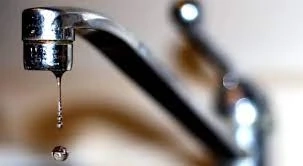Water leak detection is a crucial aspect of maintaining a property. It involves identifying and locating water leaks in a timely manner to prevent further damage and minimize costs.
What is water leak detection and why is it important?
Water leak detection is the process of identifying leaks in plumbing systems, whether in residential or commercial buildings. Timely detection of leaks is important to prevent potential damage to the property, such as mold growth, structural damage, and high water bills.
Prevent Property Damage: Regular water leak detection helps in preventing property damage by identifying leaks early on. This allows for immediate repairs, minimizing the risk of costly repairs or replacements in the future.
Save Money: Detecting and repairing water leaks promptly can save you a significant amount of money on your monthly water bills. Even small leaks can lead to substantial water wastage and inflated bills over time.
Preserve Water Resources: By promptly detecting and repairing water leaks, you contribute to the conservation of our planet\'s precious water resources. Conserving water is not only essential for environmental sustainability but also helps in reducing your carbon footprint.
Peace of Mind: Knowing that your property is free from water leaks gives you peace of mind. It eliminates the worry of hidden damage or unexpected expenses that may arise due to undetected leaks.
In conclusion, investing in water leak detection is essential for protecting your property, saving money, preserving water resources, and providing peace of mind. Regular maintenance and inspections can help identify leaks early on, allowing for quick repairs and preventing further damage.
Common Causes of Water Leaks
Identifying the main culprits behind water leaks
Water leaks can be a frustrating issue to deal with. Not only can they lead to water damage, but they can also cause costly repairs. It\'s important to understand the common causes of water leaks so that you can take preventive measures and avoid unnecessary expenses.
Here are a few main culprits behind water leaks:
- Pipe issues: Old or corroded pipes can develop cracks or leaks over time. These leaks are often hidden behind walls or underground, making them difficult to detect.
- Faulty plumbing fixtures: Damaged or worn-out plumbing fixtures, such as faucets, valves, or showerheads, can cause water leaks. Regular maintenance and inspections can help identify and fix these issues.
- Clogged drains: Blocked drains can lead to overflowing and eventually result in water leaks. Addressing clogged drains promptly can prevent further damage.
- Foundation problems: Uneven settling of the foundation or cracks in the foundation walls can allow water to seep into the building, causing leaks.
- Extreme weather conditions: Freezing temperatures or heavy rainfall can put excessive pressure on pipes and cause them to burst or develop leaks.
By being aware of these common causes, you can be proactive in preventing water leaks in your home or business. Regular maintenance, inspections, and prompt repairs are crucial in keeping your property dry and avoiding unnecessary expenses caused by water damage.
Remember, it\'s always better to catch a small leak early on before it becomes
Signs of Water Leaks
Water leaks can cause a lot of damage if left undetected. But how do you know if you have a water leak problem? Here are a few signs to look out for.
How to recognize if you have a water leak problem
- Increase in water bills: If your water bills have been steadily increasing without any change in usage patterns, it could be a sign of a hidden leak.
- Damp and moldy areas: Check for damp or moldy areas in your home, especially near walls, ceilings, or floors. This could indicate a water leak behind the surface.
- Decreased water pressure: If you notice a sudden decrease in water pressure, it could be due to a leak in the pipes.
- Water stains: Look for water stains on walls, floors, or ceilings. These stains can be an indicator of a water leak.
- Incessant sound of running water: If you constantly hear the sound of running water even when all faucets are turned off, there might be a leak somewhere.
- Persistent musty odor: A persistent musty odor could be a sign of hidden water leaks causing mold and mildew growth.
If you notice any of these signs in your home, it\'s important to address them promptly by calling a professional plumber who specializes in water leak detection. Early detection and repair can save you from costly damages and ensure the integrity of your plumbing system.
DIY Water Leak Detection Methods
Simple techniques to detect water leaks on your own
Water leaks can be a hassle to deal with, but detecting them early is crucial to prevent further damage. Here are a few simple techniques you can use to identify water leaks in your home:
- Check for visible signs: Look for wet spots, discoloration, or mold on walls, ceilings, and floors. These are clear indications of a water leak.
- Monitor your water bill: If you notice a sudden increase in your water bill without any change in consumption, it could mean there is an unseen water leak.
- Inspect your water meter: Turn off all faucets and water-consuming appliances, and then check the water meter. If the dial is still moving, it could suggest a hidden leak.
- Use food coloring: Add a few drops of food coloring to your toilet tank. If the color appears in the toilet bowl without flushing, there may be a leak in the flapper valve.
- Listen for running water: Turn off all taps, appliances, and faucets, and listen for the sound of running water. If you hear it but cannot identify its source, there might be a hidden leak.
By implementing these simple DIY methods, you can save money on expensive repairs and prevent water damage to your property. Regularly checking for water leaks is an essential part of home maintenance that should not be overlooked.
https://sites.google.com/site/alfahedclean/detect-water-leaks-in-riyadh-workers-filipina
https://www.instagram.com/smsmstar80
https://twitter.com/Waterleakdetct



